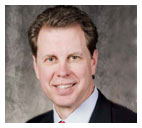|
Download the Media Review | JW in the News | 100 Years of History
Paul Watler's Podcast: Citizens United
* Click here to listen to this podcast Citizens United v. Federal Election Commission instantly became one of the most controversial First Amendment decisions in the Court's history. Some called it bigger than Bush v. Gore. The President himself criticized the decision with the Court seated before him in his State of the Union address to Congress. Though Citizens United only addressed federal law, the Texas Ethics Commission promptly issued guidance that provisions of the Texas election code prohibiting direct campaign spending by corporations are now unenforceable Citizens United held that the federal campaign finance reform law prohibiting corporations from making independent expenditures for "electioneering communications" or for speech that expressly advocates the election or defeat of a candidate violates the First Amendment. The Court wrote, "The First Amendment does not permit Congress to make … categorical distinctions based on the corporate identity of the speaker and the content of the political speech." Texas appears a ripe environment for corporate spending in judicial campaigns ... If Citizens United sweeps away Texas restrictions, corporate cash may flow directly from company treasuries into political advertising. The Court applied strict scrutiny to provisions of the Bipartisan Campaign Reform Act – commonly known as the McCain Feingold bill. The majority gave no credence to arguments that the restrictions were necessary to avoid the disproportionate impact that corporate advocacy may have on campaigns or that the restrictions prevented corruption of candidates and elected officials. In striking down the statute as an impermissible abridgement of free speech under the First Amendment, the Court stated that "no sufficient governmental interest justifies limits on the political speech of … corporations." Almost half the states – including Texas – have restriction on corporate campaign spending, similar to the provisions found unconstitutional in Citizens United. Like federal law, the Texas Election Code prohibits direct expenditures on political advertising by a corporation or union that expressly advocate the election or defeat of a particular candidate. Because the foundation of the Citizens United decision rests on the broad protections of the First Amendment – made applicable to the States under the 14th Amendment – state law restrictions on corporate political spending may now be subject to challenge. Indeed, the Texas Ethics Commission has already acted. In an advisory issued four days after Citizens United, TEC announced its opinion that "corporations are [now] allowed to make all types of direct expenditures" previously prohibited by the state election code. The Commission noted that prohibitions against corporate contributions directly to political campaigns – as opposed to direct advocacy – remain in place. But the TEC advisory may not be the last word. District attorneys and prosecutors in the state's 254 counties may view the law differently and while the code provisions remain on the books, the possibility of enforcement action continues to exist. Some corporations may simply disregard state restrictions and begin spending on state elections. If a local prosecutor takes up the challenge, a corporation may mount a First Amendment defense. Other corporations may seek to challenge the Texas Election Code prohibitions on corporate campaign spending with a declaratory judgment action. While court action would not be surprising, corporate interests may lobby the legislature to change the law in the wake of Citizens United. This would eliminate the uncertainty between the TEC guidance and the election code. Texas appears a ripe environment for corporate spending in judicial campaigns, given our systems of partisan selection of judges at all levels. Corporate political action committees have long been active spenders in such races in Texas. If Citizens United sweeps away Texas restrictions, corporate cash may flow directly from company treasuries into political advertising. Justice John Paul Stevens, who dissented in Citizens United, warned that the decision would "unleash the floodgates of corporate and union general treasury spending" in elections. No doubt, if that occurs, a lot of that spending will find its way to Texas judicial races.
Jackson Walker partner Paul Watler regularly provides podcasts for Texas Lawyer. An archive of previous First Amendment podcasts can be found here. |






